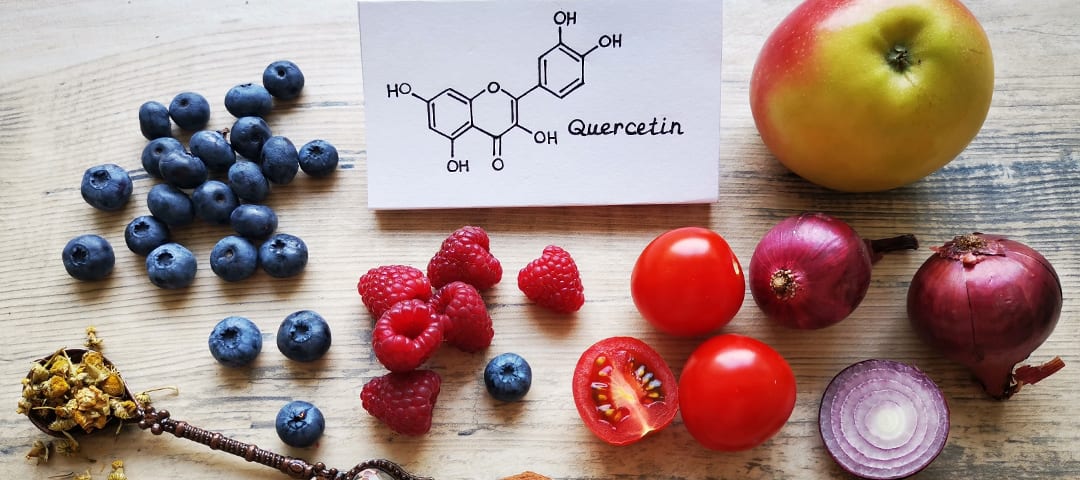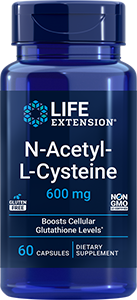
Newsletter
Newsletter
Greater Intake of Plant Flavonols Associated with Lower Premature Mortality Risk

In a large, 7.8-year median follow-up study, participants who had a high intake of flavonols had a lower risk of dying from cancer, cardiovascular disease or all causes. The findings were published on February 25, 2024, in the Nature journal Scientific Reports, the world’s fifth most-cited journal.
“This finding may be related to the anti-tumor, anti-inflammatory, and anti-oxidative stress properties of flavonol,” wrote author Zhiqiang Zong and colleagues at Anhui Medical University in China.
Flavonols are found in fruits, vegetables and other plants. Individuals whose total flavonol intake was among the top 25% of subjects had an adjusted 56% lower adjusted risk of dying from cancer, a 31% lower adjusted risk of dying from cardiovascular disease and a 40% lower adjusted risk of mortality from other causes compared with people whose flavonol intake was among the lowest 25%.
Not all flavonols are created equal, however, according to the study. When researchers examined the association between individual flavonols and mortality rate, they found that having an intake in the top 25% of subjects of a specific type, quercetin, experienced a 47% reduction in the risk of dying from cancer and 38% lower risks of cardiovascular and other causes of mortality compared with those whose quercetin intake was lowest. Some food sources of quercetin include citrus fruit, apples, berries, onions, wine and tea.
The study included data from 11,679 adult participants who enrolled during 2007–2008, 2009–2010, and 2017–2018 in the National Health and Nutrition Examination Survey (NHANES) of U.S. residents. Dietary recall interview responses provided information concerning food intake, which researchers analyzed for flavonol content.
Products
Apply What You’ve Learned: Flavonoids
- Flavonols are a class of flavonoids (also known as bioflavonoids), which are polyphenol compounds that occur in plants. The presence of these compounds is one of the reasons that a plant-based diet is so beneficial.
- There are six categories of flavonoids readily available in a varied human diet: flavonols, isoflavones, flavones, anthocyanidins, flavan-3-ols, and flavanones.
- Quercetin has increasingly been recognized as a particularly beneficial flavonol. Studies have associated the intake of quercetin with support of healthy blood pressure, endothelial function and inflammatory response, and other benefits.3-5
- Apples, berries, cherries, red leaf lettuce, asparagus and especially onions are good sources of quercetin. It is also present in some varieties of tea and wine.6 When consumed, quercetin has limited bioavailability, meaning it doesn’t directly enter circulation; however, quercetin specially formulated with fenugreek fiber has increased bioavailability in the body.7
References
- Zong Z et al. Sci Rep. 2024 Feb 25;14(1):4572.
- Data on file.
- Huang H et al. Nutr Rev. 2020 Aug 1;78(8):615-626.
- Serban MC et al. J Am Heart Assoc. 2016 Jul 12;5(7):e002713.
- Dower JI et al. J Nutr. 2015 Jul;145(7):1459-63.
- Deepika et al. Review Molecules. 2022 Apr 13;27(8):2498.
- Joseph A et al. ACS Omega. 2022 Dec 9;7(50):46825-46832.
Featured Life Extension Magazine® Article
Protect Your Eyes Against Vision Loss
By Joseph Licht
Our eyes are exposed to damaging ultraviolet light and oxidative stress throughout our lives. People with high blood sugar face even more damage to eye tissues.
Lutein and zeaxanthin are carotenoids, which is a family of nutrients that includes the better-known beta-carotene. These plant pigments are taken up by the eyes where they filter harmful blue light and protect against ultraviolet and oxidative damage. However, not all diets provide optimal amounts of these nutrients, leaving us with insufficient protection against the risk of macular degeneration, cataracts, glaucoma and digital eye strain.
Read Full Article
What's Hot
Health Concern
More on flavonoids
Findings from a study reported in the February 14, 2023, issue of the journal Neurology revealed that consuming more of a type of antioxidant flavonoid known as flavonols was associated with a slower rate of cognitive decline among older men and women in comparison with consuming a low amount.

Cancer Adjuvant Therapy
Review integrative and novel therapies, including natural interventions and the off-label use of common drugs, which have potential value in the setting of adjuvant cancer care.
Related Life Extension Magazine® Articles

Deliver More Quercetin to Your Cells
Quercetin improves metabolic and cardiovascular health, but it is poorly absorbed. A clinical trial found that an advanced formulation increases quercetin bioavailability by 62% and also boosts bioactive free quercetin in circulation.

Plant-Based Multivitamins with Phytonutrients
Researchers combined extracts and powders of 12 foods to provide the phytonutrient equivalent of three servings of vegetables and two servings of fruit as well as key vitamins and minerals.
Life Extension Magazine® Issue Now Online
A remarkable number of healthy-longevity findings have been published over the past 18 months.
The latest news on aging, nutrition, and vitamins
Health News
AMPK Metabolic Activator (item #02207): This supplement should be taken in conjunction with a healthy diet and regular exercise program. Individual results are not guaranteed, and results may vary.





